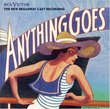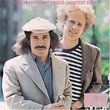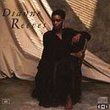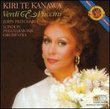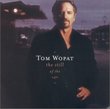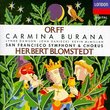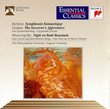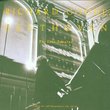| All Artists: Juan Diego Flórez, Osmv, Rizzi Title: Great Tenor Arias Members Wishing: 0 Total Copies: 0 Label: Decca Release Date: 9/14/2004 Genre: Classical Style: Opera & Classical Vocal Number of Discs: 1 SwapaCD Credits: 1 UPC: 028947555025 |
Search - Juan Diego Flórez, Osmv, Rizzi :: Great Tenor Arias
 | Juan Diego Flórez, Osmv, Rizzi Great Tenor Arias Genre: Classical
Here the remarkable young Peruvian tenor Juan Diego Florez not only offers us what we've become accustomed to---gorgeous, graceful singing of very difficult bel canto gems (in this case, high-flying, virtuosic arias from R... more » |
Larger Image |
CD DetailsSynopsis
Amazon.com Here the remarkable young Peruvian tenor Juan Diego Florez not only offers us what we've become accustomed to---gorgeous, graceful singing of very difficult bel canto gems (in this case, high-flying, virtuosic arias from Rossini's Semiramide and L'Italiana in Algeri. He also ventures into unknown waters. He sings an aria added by Donizetti for an Italian production of The Daughter of the Regiment ("La figlia" rather than the usual "La fille") which turns out to be just right for his voice, and he charms with his crisp diction and youthful approach. Paolino's aria from Cimarosa's Il matrimonio segreto is a substantial piece of bel canto writing, with some nice coloratura fireworks near the end which Florez sails through with ease, and Rinuccio's ditty from Puccini's Gianni Schicchi---perhaps the most heavily orchestrated piece he's sung and stylistically the opposite of anything else on the CD---is also tossed off with true élan. On the other hand, Florez has a lot to learn about the Gluckian style, judging from his Romantic approach to Orphée's aria, and his French could use some brushing up if he's going to sing anything from Halévy's La Juive, although the vocal hurdles that the composer put in the tenor's way do not seem to bother him at all. A surprising disappointment is "La donna e mobile," which is over-sung and charm free. But can any tenor around be expected to sing all of these (and a few others, too) perfectly? Florez remains a true delight, his sound beautiful, his production easy from top to bottom. Despite reservations, highly recommended. --Robert Levine Similarly Requested CDs
|
CD ReviewsThird album by Florez klavierspiel | TX, USA | 12/31/2004 (4 out of 5 stars) "This, the young Peruvian tenor Juan Diego Florez' third album, includes more of the bel canto repertory with which he has risen to international fame. Hearing Lindoro's scene from L'Italiana in Algeri, to cite one example, will make the first-time listener realize why. The tenor's firm, even tone, agility in coloratura and secure high notes--all the way up to a solid high D in one selection--are still sources of wonder. "Great Tenor Arias" also includes forays into other areas of the repertory, from operas which Florez has not yet sung and may never sing on stage. Indeed, one hopes that no one talks him into trying Verdi's Duke of Mantua any time soon--his rendition of "La Donna e Mobile" is solid, if a bit lacking in charm, but the entire role would surely overtax his vocal resources. Puccini's Rinuccio, from the evidence of Florez' take on the aria from Gianni Schicchi that concludes this somewhat short (less than an hour of music) CD, would be a more comfortable fit, but he is already too much of a marquee name to take on what is basically a supporting role. If this CD as a whole leaves a slightly unsatisfying impression, it is because the experiments by Florez remain just that--vocal explorations rather than performances undertaken out of deep dramatic or musical conviction. In addition, some of the more obscure music, Cimarosa and early Verdi in particular, is not of the highest quality, and here Florez' comparative inability to characterize vocally becomes a liability. All in all, despite the outstanding singing, a newcomer to this tenor's art would probably be better served by starting with one of his two earlier albums, the first of Rossini, the second Bellini/Donizetti." Muy bien cantado...Pero falta algo Annio mozartiano ;) | Espa�a | 11/06/2004 (3 out of 5 stars) "JUAN DIEGO FLOREZ es sin duda alguna el mejor tenor de la actualidad en su repertorio (Rossini y ciertos roles belcantistas) y sus trabajos discograficos siempre consiguen los mas fervientes aplausos. Yo mismo, ya elogie en su dia aqui sus dos registros anteriores en solitario con este mismo sello. Pero ahora, en este tercer trabajo, la magia no se produce de igual manera que las veces anteriores: la voz sigue estando ahi, bellisima y con un alarde de agudos bastante importante...Pero el repertorio no es el mas adecuado a la vocalidad de Florez, por lo que le ofrece escasas posibilidades de lucimiento. Un repertorio como este, en la voz de un tenor desconocido que comienza pudo haber sido interesante, pero en la voz de un tenor ya consagrado como es Florez, deja una sensacion de vacio bastante grave. Habra que esperar al cuarto (ya se anuncian "Canciones latinoamericanas" en lo que puede ser un interesante cambio de registrio) para ver si se vuelve a producir la magia. CARLO RIZZI y la orquesta rinden a un buen nivel, mucho mayor que la orquesta y el director del disco anterior de Florez." The Tenor who Aims at Vocal Perfection Abel | Hong Kong | 10/08/2007 (5 out of 5 stars) "And rightly he will get to the top.
JDF's Great Tenor Arias are not meant for casual listening. The choice or songs are a bit on the 'rare' side - even the aria from Du Fille di Regiment is an 'alternative' aria to the well-known one with 9 High-Cs. The timbre of JDF may cause certain 'fatigue' with over-listening, so I wonder if I will be one for his solo recital, at least judging from the studio effect on his CDs. That said, this is a singer with such precision in nearly all aspectsof the voice production that you will have a really hard time to pick out any of his vocal flaws. Sometimes, it sounds much like a 'human violin' (borrowing from the idea of violinist Joshua Bell's 'Voice of the Violin'). Track 7 and track 1 are both more well-known arias. JDF's singing is simply seamless, though more 'character' may be built into the two arias to enhance the different moods. While track 1 is rightfully melancholic, track 7 calls for more emotional excess in the outburst of the Duke of Mantua against female fickleness. IF JDF could combine his immaculate signing technique with drama, he will definitely be an unsurpassable singer." |

 Track Listings (10) - Disc #1
Track Listings (10) - Disc #1